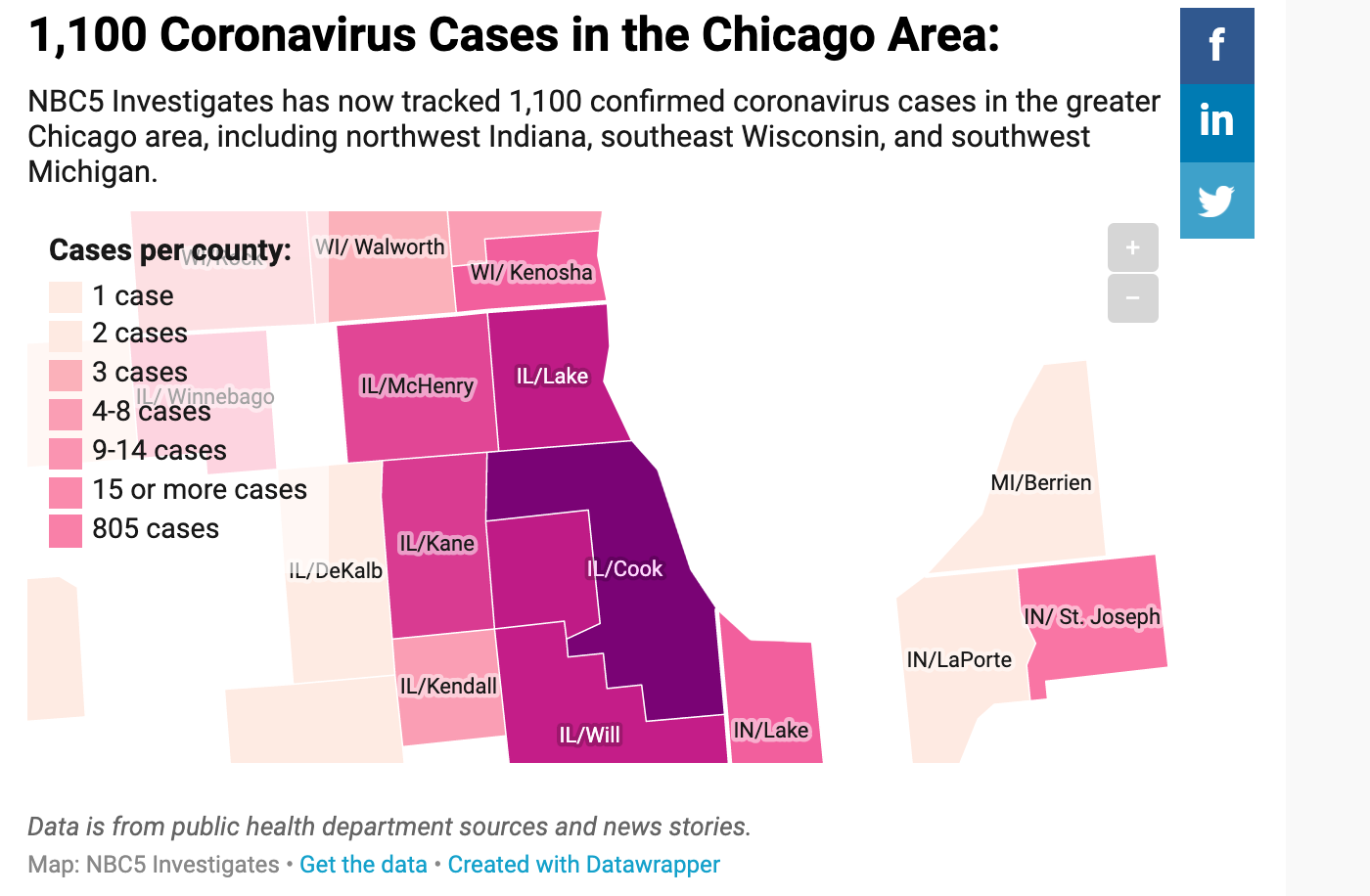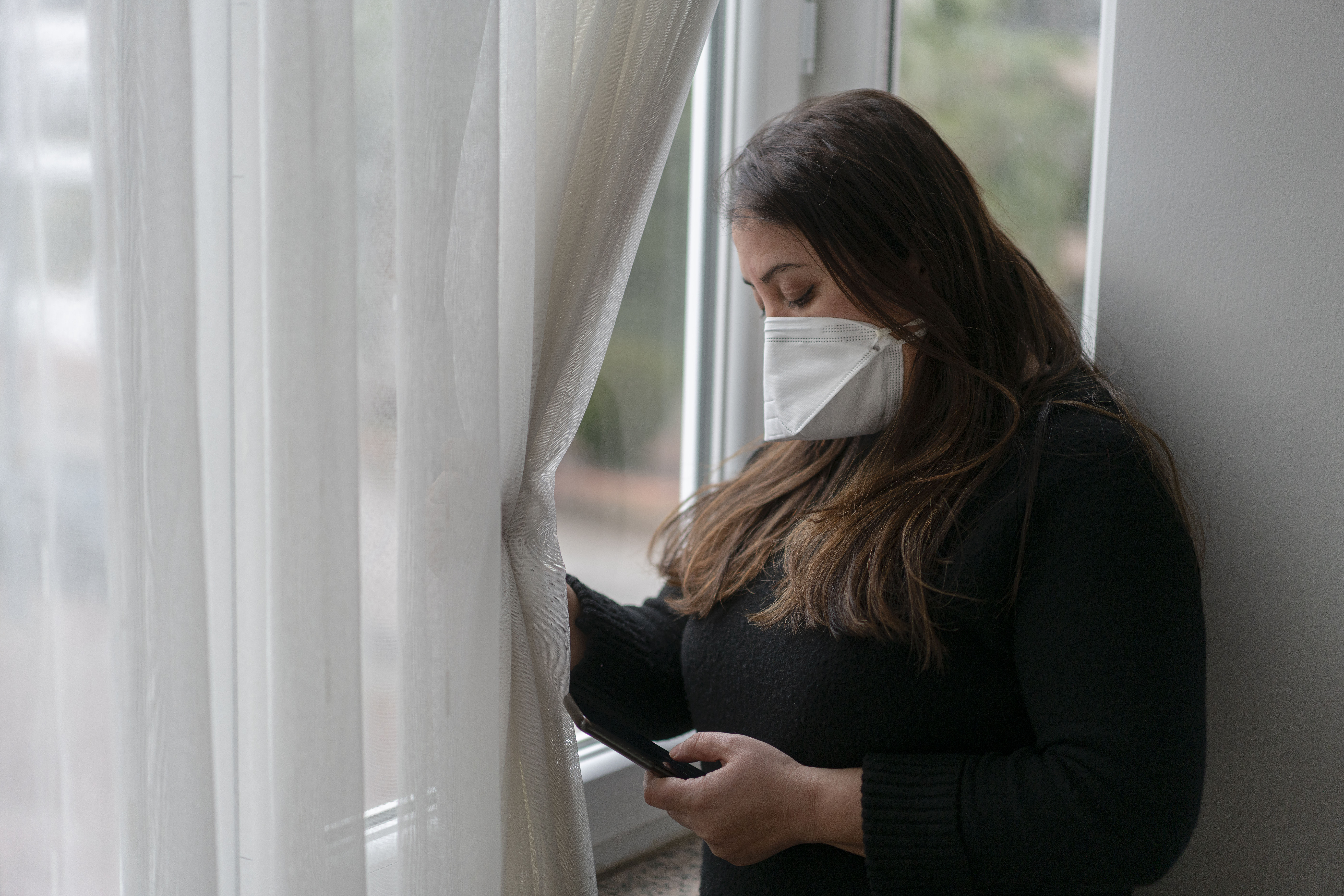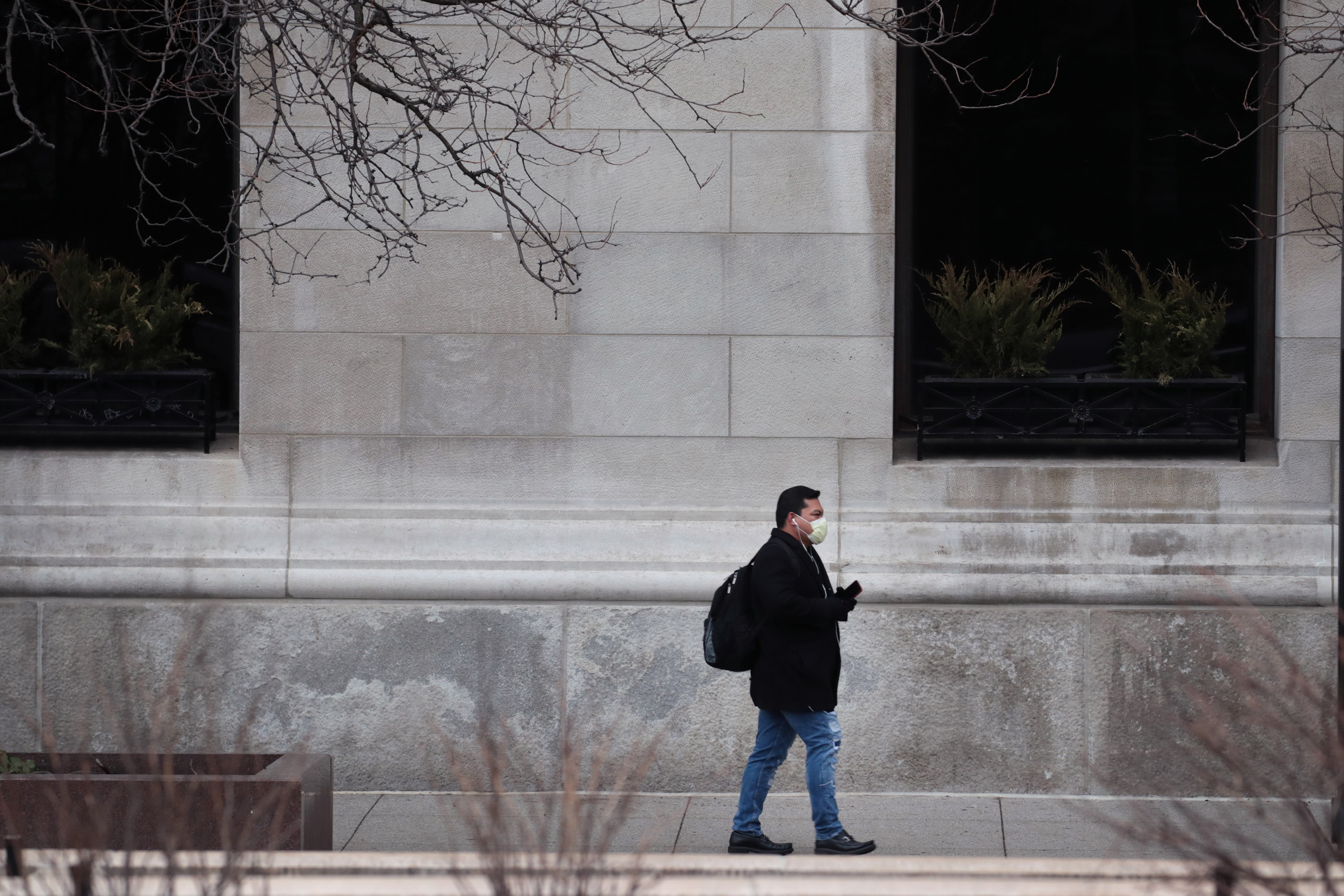Many Chicagoans have been social distancing and the city remains under a stay-at-home order, but cases continue to rise.
Why?
According to Chicago Department of Public Health Commissioner Allison Arwady, health officials expect that cases will continue to rise "for some time."
"At this point what I would say is that we are on the upward trajectory," she said Tuesday. "We expect to be on the upward trajectory here for some time. I want folks to understand that we don't just use the case counts numbers to really do our modeling and make our predictions. We know that the very widespread testing that we would like to see is still not fully available because of disruptions in the supply chain and so we have ways that we look at things like hospitalization rates and ICU rates. We have ways of applying testing that lets us have what's called surveillance where you can be checking some testing even in people who are not coming for coronavirus testing to have a sense of what we're seeing in the population. These things that we have put in place take time to show effect."
An additional 236 confirmed cases of coronavirus were reported in Illinois Monday, along with three additional deaths, increasing the statewide case total to 1,285 in 31 counties. Chicago and Cook County have so far reported the highest number of confirmed cases in the state.
The three new deaths, which lift the state to 12 fatalities total associated with COVID-19, were also reported in Cook County and included two men in their 80s and a man in his 90s.
In Chicago, a public health order requires anyone who is showing symptoms or has been diagnosed with coronavirus to stay in their homes, with few exceptions.
"If you even think about the basic incubation period of the virus - we think about if you've been exposed, you don't get sick right away. It's a minimum of two days it's an average of five or six days and it can be up to 14 days for someone to potentially develop symptoms. So where we think about seeing the effects of a lot of these more aggressive social distancing and stay at home, it takes a couple of weeks to potentially be seeing the full impact on those rates," Arwady said. "So, every day we're looking at this. We'll hope to be seeing some leveling off on that but it's in the combination of when we're also seeing an increased rise in tests. So I want you to know we're looking at this with a lot of scientists and modelers. We're looking at what would you predict? And when you have schools closed, when you brought gatherings down to a particular size, when you have stay-at-home orders, what does that actually do to the likelihood of people interacting with each other.... if you keep three quarters of your population in place, you cut by a lot even the numbers who are moving around... different ways to play with it."
On Friday, Gov. J.B. Pritzker extended the statewide schools' closure through April 7, and added he's not certain when schools will be able to safely reopen.
For a list of Chicago-area closures and cancellations, click here.





